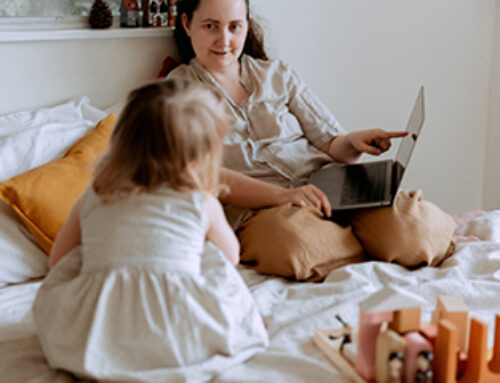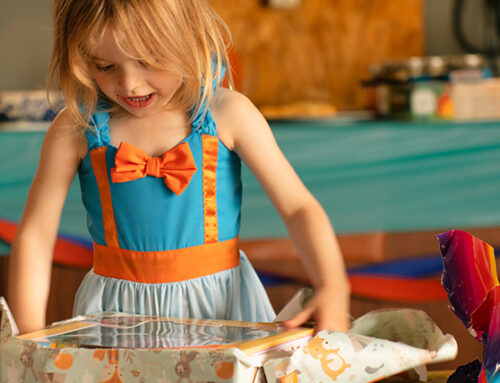What is self-regulation?
- Self-regulation is the ability to manage and control emotions and behavior in response to a situation (Zimmerman & Kinsantas, 2014).
Why is self-regulation important?
- Self-regulation skills help children participate in school and play.
- Young children feel emotions before they understand what those emotions mean.
- Without a full understanding of emotions, children do not know how to respond when feeling overwhelmed and can act out or become withdrawn.
- Self-regulation skills help children recognize their feelings and respond in a calm and appropriate way.
- Self-regulation is necessary for school-related activities such as following a teacher’s instructions, sharing toys with friends, and having a safe body around peers.
Here are ways to promote self-regulation skills:
Mindfulness Strategies
- Deep breaths (Practice taking deep breaths by blowing into pinwheels or blowing bubbles).
- Yoga poses (Apps like Super Stretch Kids’ Yoga and games like Yogarilla are fun and engaging ways to teach yoga).
Games
Games that involve following directions, taking turns, and controlling your body movements help teach kids self-regulation:
- Red light, green light
- Simon says
- Duck, duck, goose
- Freeze dance
- Hide and go seek
Heavy Work
Activating the muscles and joints can have a calming effect.
Seated Heavy Work
- Squeezing a stress ball
- Playing with playdoh or theraputty
- Pulling resistance bands
Movement Heavy Work
- Wall or chair push-ups
- Pushing or pulling heavy objects around the room (medicine ball, laundry basket, books, etc.)
- Jumping on a trampoline
- Jumping jacks
- Yoga poses
- Animal walks (walking on hands and feet like a bear or crab, galloping like a horse, frog jumps, etc.)
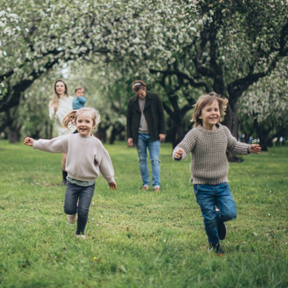
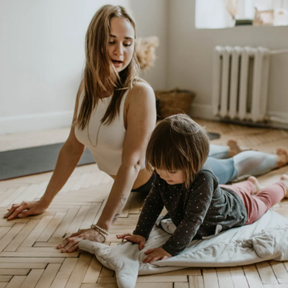
Oral Motor Heavy Work
- Chewing on crunchy snacks
- Drinking or blowing through a straw
- Bracelets or necklaces that are designed for chewing
Pretend Play
- Pretend play allows children to act out emotions in a non-stressful environment.
- Adults can participate in pretend play with children to model self-regulation strategies.
Change the Environment and Set-Up a Cozy Corner
- Set up a quiet corner with a bean bag or pillows for children to calm down in a less stimulating environment
- Offer headphones if it is loud
- Play quiet, calming music
- Dim the lights
- Reduce clutter in the environment
- Provide deep pressure through giving hugs, hand squeezes, or using a weighted blanket
Ask your occupational therapist about self-regulation programs and strategies such as the Alert Program, social stories, sensory diets, visual schedules, and zones of regulation.
Reminder: children do not need to be “regulated” all day long!
The American Academy of Pediatrics recommends at least 1 hour of unstructured, unobstructed play per day.
Resources
- https://www.theottoolbox.com/how-to-support-self-regulation-in-preschoolers/
- https://childdevelopment.com.au/areas-of-concern/sensory-processing/self-regulation/
- https://theinspiredtreehouse.com/self-regulation/
- https://www.greatschools.org/gk/articles/7-ways-to-teach-your-kindergartner-self-regulation/
- https://minds-in-bloom.com/sensory-strategies-help-kids-self-regulation-classroom/
- https://www.foothillsacademy.org/community-services/parent-education/parent-articles/self-regulation-difficulties
- https://childmind.org/article/can-help-kids-self-regulation/
- https://theinspiredtreehouse.com/10-calming-sensory-strategies-for-school/
- https://www.theottoolbox.com/heavy-work-activities/
- https://publications.aap.org/pediatrics/article/142/3/e20182058/38649/The-Power-of-Play-A-Pediatric-Role-in-Enhancing
Articles
- https://pubmed.ncbi.nlm.nih.gov/26968457/ (Incorporating mindfulness strategies can help with behaviors and parent-child relationships.)
- https://research.aota.org/ajot/article/70/6/7006290010p1/6221/Scoping-Review-of-Self-Regulation-What-Are (Systematic review of self-regulation articles.)
- https://www.tandfonline.com/doi/pdf/10.1080/19411243.2014.966013?casa_token=yyUfuaC_bvAAAAAA:WdlNucoN-9yv_PrkMikoV7dmdIGF0rEFc7fPra1Wgg0vgwtrHOs33q94dLKQCk9CfF_trGkT-vc4QPkW (ALERT program—children benefit from incorporating language about self-regulation into their daily routine.)
- https://www.sciencedirect.com/science/article/abs/pii/S0361476X14000162 (Source for the definition of self-regulation.)
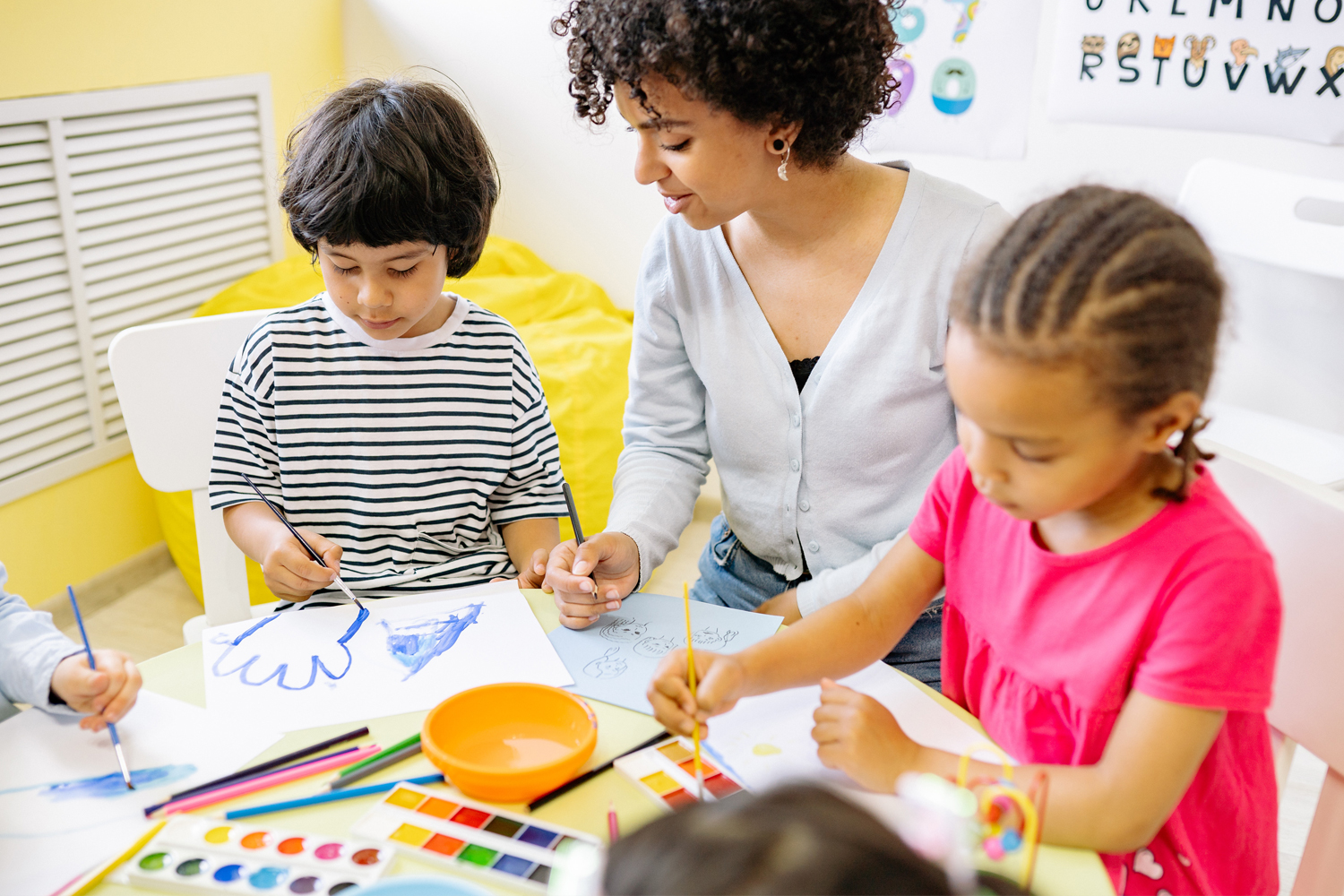
Blue Bird Day fosters socialization, sensory regulation, and pre-academic learning in children ages 2-7 years in therapeutic rotations that simulate preschool and kindergarten settings. Our compassionate therapists practice a relationship-based and family-centered approach, provide parent training, and collaborate on goals and individualized intensive treatment plans for your child.
We believe in a collaborative and multi-disciplinary team approach to therapy. A team of occupational therapists, speech-language pathologists, dietitians, developmental therapists, behavioral therapists, physical therapists, and therapeutic assistants are created for each child to ensure child and family are fully supported and the best possible results are achieved.
Options for individualized, group and virtual therapy sessions are available as well.
Want to learn more or you have a specific question? Feel free to connect with us here!

